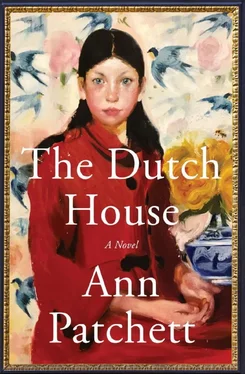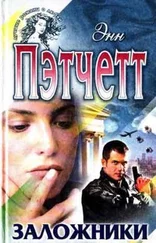I looked at Sandy and then Jocelyn. Now they were both laughing. “You didn’t mean it?”
“What?” Sandy said, wiping at her eyes.
“About our mother being, I don’t know, like a saint?”
The tension in the room shifted and then we were all very aware of how we were sitting and what we were doing with our hands. “Your mother,” Jocelyn said, and then she stopped and looked at her sister.
“Of course we loved your mother,” Sandy said.
“We all loved her,” Maeve said.
“She was gone a lot,” Jocelyn said, trying to pick her words.
“She was working.” Maeve was tense but in a different way from Sandy and Jocelyn.
I had no idea what any of them were talking about, nor did I know that our mother had ever had a job. “What did she do?”
Jocelyn shook her head. “What didn’t she do?”
“She worked for the poor,” Maeve said to me.
“In Elkins Park?” There were no poor people in Elkins Park, or none that I’d ever seen.
“She worked for the poor everywhere,” Sandy said, though I could tell she was trying her best to explain the situation kindly. “She could always find people who needed something.”
“She went out looking for poor people?” I asked.
“Dawn to dusk,” Jocelyn said.
Maeve stubbed out her cigarette. “Okay, stop this. You make it sound like she was never there.”
Jocelyn shrugged and Sandy reached down for the thumb-print cookie with the round spot of apricot jam.
“Well,” Maeve said, “we were always happy when she came home.”
Sandy smiled and nodded. “Always,” she said.
Early Sunday morning Maeve came into the bedroom and opened the blinds. “Get up, get dressed. We’re going to church.”
I pulled a pillow over my head, hoping to find my way back into the dream I was falling out of, a dream I already couldn’t remember. “No.”
Maeve leaned over and pulled off the pillow. “I mean it. Up, up.”
I looked at her from one slitted eye. She was wearing a skirt, and her hair, still wet from the shower, was braided. “I’m sleeping.”
“I’ve been very nice. I let you sleep through the eight o’clock service. We’re going to make the ten-thirty.”
I dug my face into the pillow. I was waking up and I did not want to wake up. “There’s no one watching. No one can make us go to church anymore.”
“I can make us go.”
I shook my head. “Make yourself go. I’m going back to sleep.”
She dropped down hard on the edge of the bed, making me bounce a little. “We go to church. That’s what we do.”
I turned over on my back and opened my eyes grudgingly. “You’re not following.”
“Up, up.”
“I don’t want anyone hugging me or telling me how sorry they are. I want to go back to sleep.”
“They’ll hug you this Sunday and next Sunday they’ll just wave like nothing ever happened.”
“I’m not going next Sunday either.”
“Why are you being like this? You never complained about going to church before.”
“Who would I have complained to? Dad?” I looked at her. “You win all the fights. You know that, right? When you have kids of your own you can make them go to church every morning and say the rosary before school. But I don’t have to go, you don’t have to go. We don’t have parents. We can go out for pancakes.”
She shrugged. “Get your own pancakes,” she said. “I’m going.”
“You don’t need to do this for me.” I raised up on my elbows. I couldn’t believe she was carrying her point so far. “I don’t need a good example.”
“I’m not doing this for you. Jesus, Danny. I like going to Mass, I like believing in God. Community, kindness, I buy into the whole thing. What in the hell have you been doing in church all these years?”
“Memorizing basketball stats mostly.”
“Then go back to sleep.”
“Are you telling me you went to church when you were in college? You got up all those Sunday mornings in New York when no one was watching?”
“Of course I went to church. Don’t you remember when you came to see me? We went to Good Friday Mass together.”
“I thought you were just making me go.” That was the truth, too. Even at the time I assumed she’d promised our father that she’d get me to Mass for Good Friday if he let me stay.
She started to say something else then let it go. She patted my ankle beneath the bedspread. “Get some rest,” she said, and then she left.
It would have been hard to pick apart exactly why we went to church, but everyone did. My father saw his colleagues and his tenants there. Maeve and I saw our teachers and our friends. Maybe my father went to pray for the souls of his dead Irish parents, or maybe church was the last vestige of respect he paid our mother. To hear people talk, she had loved not only the church and the parish community but every last priest and nun. Maeve said our mother had felt most at home in the church when the sisters stood and sang. From what little I knew of her, I was sure she wouldn’t have married my father if he hadn’t been willing to go to church, and without her he continued to drag us to the altar, preserving the form in the absence of content. Maybe it was because he had never considered it could have been otherwise, or maybe because his daughter listened to the homily leaning forward, the missalette in her hands, while his son considered the Sixers’ chances in the playoffs and he contemplated a building that was for sale at the edge of Cheltenham township, though for all I knew my father listened to the priest and heard the voice of God. We never talked about it. In my memory, it was always Maeve who was racing around on Sunday morning, making sure we were ready: dressed, fed, in the car in plenty of time. After she had gone to college, it would have been so easy for my father and me to put the whole enterprise to bed. But then there was Andrea to consider. She despised Catholicism, thought it was a cult of lunatics who worshiped idols and claimed to eat flesh. My father could go to the office before first light Monday through Friday and find excuses to stay out through dinner. He could eat up Saturdays in the car collecting rent or visiting various construction projects. But Sunday was a tricky day to occupy. Church was all he had to work with if he wanted to get away from his young wife. My father talked to Father Brewer about my becoming an altar boy, then signed me up without consultation. The altar boys had to be at church a half hour early to help prepare the sacraments and assist Father Brewer with his vestments. And while I was slated for eight o’clock Mass, there were plenty of times I worked the ten-thirty as well. Someone was always calling in sick or going on vacation or simply refusing to get out of bed, luxuries I had never been afforded. Since I was an altar boy, my father thought it was important for me to attend Sunday school as well, to be a good example he said, even though Sunday school was for public school kids who weren’t already getting some brand of religious indoctrination five days a week. But there was no place in the conversation to tell my father he was being ridiculous. After Mass, he sat in the car with his cigarettes and newspaper and waited for me, and when all the work was done, every last prayer recited and chalice washed, he would take me to lunch. We had never gone out to lunch when Maeve was at home. Thus our single hour of Mass stretched to cover half of Sunday, protecting us from family obligations and giving us at least some time together between the lighting of the candles and the blowing out. For this I will always be grateful, though not grateful enough to get out of bed.
But on Monday morning Coach Martin called me into his office and reiterated his sorrow for my circumstances. Then he said I needed to be at Mass to pray for my father. “All the varsity players at Bishop McDevitt go to Mass,” he told me. “Every single one of them.”
Читать дальше





![Энн Пэтчетт - Прощальный фокус [litres]](/books/402782/enn-petchett-prochalnyj-fokus-litres-thumb.webp)






